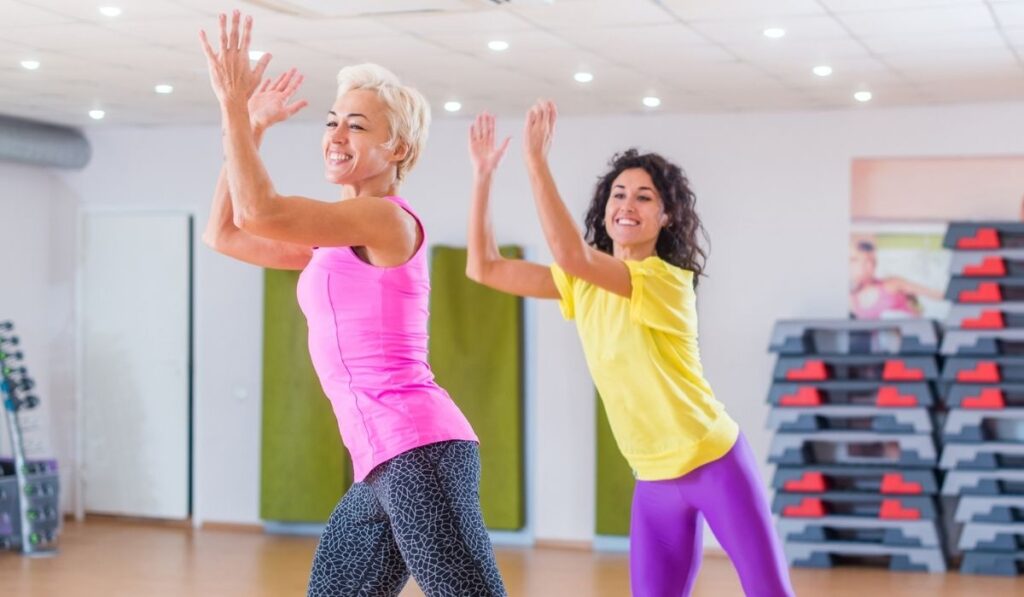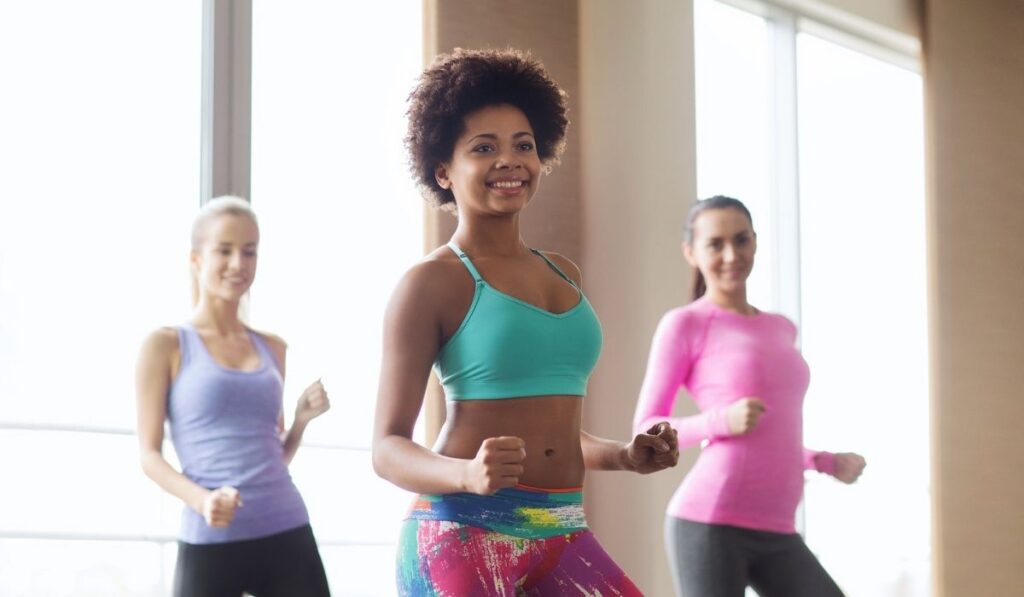Zumba blends elements of dance with aerobics for workouts that are suitable for all ages. It’s reported to improve flexibility, posture, metabolism, endurance, strength, and fitness while enhancing general wellbeing. Other findings revealed it could improve mood coordination, burn calories, and improve confidence. Yet, as could be applied to most exercises, Zumba can affect your teeth in a way that is cause for worry.
Zumba can cause gum inflammation and faster tooth decay from mouth breathing. This effect isn’t unique to Zumba, and trying to breath through your nose as much as you can while practicing Zumba or other sports will reduce the negative effects of exercises involving heavy breathing on your teeth.
Zumba promises many health benefits, but it’s a surprise to find that there might be a few drawbacks too. In this article, you will discover the connection between oral health, Zumba, and key concerns you may have about practicing Zumba or other strenuous activities and their effects on teeth.
Is Zumba Bad For Your Teeth?

Zumba could have a somewhat bad effect for your teeth. Regular Zumba participants may experience some dental concerns because of the vigor associated with aerobics and workouts.
A study found that exercise coupled with regular healthy eating habits were 40% less likely to cause gum disease, periodontal gum disease, and loss of teeth. But while Zumba may help your overall wellbeing, it can also predispose your teeth to health challenges.
A scientific report published in the Scandinavian Journal of Medicine & Science in Sports revealed runners showed significantly higher tooth erosion. Other evidence showed that exercise increases blood flow in the body, which may cause inflammation of the gums or teeth.
One of the standard practices during exercise is heavy breathing, which results in mouth breathing. While that may make your body feel great, it could also lead to tooth decay and cavities.
Mouth breathing limits the level of saliva production, which makes the mouth dry. Dry mouth is a major cause of tooth decay, which is a result from the activities of thriving dangerous bacteria. Trying to breath through your nose as much as possible is recommended, and many see this is a way to also get a bit more out of their workout (since it’s harder).
How Does Zumba Affect Your Teeth?
Zumba is a high-intensity and fast-paced exercise that makes you sweat profusely and get thirsty. This changes your rate of saliva production, triggering higher chances of quenching your thirst with sports drinks, which are often extremely high in sugar.
The problem with sports drinks is that they are loaded with tooth-damaging ingredients, such as sugar and acids. They are, no doubt, the recipe for tooth decay.
Exercises, especially running, will increase blood flow to your body, and this can predispose your gum to inflammation. It can also worsen any underlying teeth or gum issues you may already have.
A lot of heavy breathing during a workout also accelerates these issues.. Mouth breathing limits the amount of saliva produced in the mouth, making it dry. This creates a perfect environment for dangerous bacteria and could eventually lead to tooth decay.
According to research published in the Scandinavian Journal of Medicine and Science in Sports, those who are fully engaged in physical training have high risks of developing tooth cavities. The reason is simple – production of saliva is limited, and this reduces the ability of the saliva to neutralize mouth protein. This results in the inability to prevent tooth decay.
What Happens to Your Teeth When You’re Working Out?
There is increased acidity of your saliva when you are working out. This leads to deterioration of the enamel with higher risks of developing tooth cavities. Also, working out leads to fast-paced breathing resulting in dryer mouth, which can cause tooth cavities.
People who exercise, particularly those who engage in cardiac exercises like jogging, breathe through their mouths. This effectively dries out the mouth, leaving the teeth exposed to microorganisms and enamel degradation.
This refers to any cardio workout. With increased blood flow comes heightened blood pressure with resultant aching or pounding sensation on your teeth if you have underlying dental problems present. This could make it seem as if running hurts your teeth.
To counteract the factors against your teeth during exercise, stay hydrated, limit sugary sports drinks and drinking water during exercise. These habits will help with the harmful effects of mouth breathing and will reverse the acidity that may be present.
In addition, clenching and grinding your teeth is a common habit during exercise, and this could negatively affect your teeth. However, this can be remedied by wearing a sports mouth guard.
Can Exercise Be Beneficial To Your Gums?

Reports of studies revealing negative effects of exercise on your teeth are common. Yet, some studies point to the benefits of exercise to your gums, especially when your teeth are well-cared for. Caring for your teeth also means being cautious of consuming sports drinks that are loaded with sugar and acidic ingredients.
According to a study published in the Journal of Dentistry, increasing physical activity improves oral health and reduces the risk of periodontal disease.
Also, more research published by the National Centre for Health Statistics revealed that those who exercise less than three times a week were 33% less likely to develop gum disease, while those who exercise from three to five times daily were 52% less likely to develop gum disease, in comparison with inactive groups.
The correlation between gum disease and exercise showed that exercise affects your gum positively. No matter what, it is advised to consult your doctor before you begin a new exercise routine.


